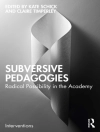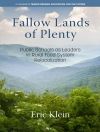This book explores the ways in which pupils with social, emotional and behavioural difficulties can be effectively engaged in schooling – either in school or at home. It explains the social and emotional underpinnings of learning and presents practical strategies for aiding engagement.
Nurture groups, originally devised and implemented in the 1970s, are specially designed classes that cater for pupils having difficulties in adjusting to the requirements of mainstream classrooms. Paul Cooper and Yonca Tiknaz present evidence of the success of nurture groups from the perspectives of the children participating in them, their parents and school staff members who manage nurture groups in schools, and examine what factors affect the success of the group. From this they draw key messages for effective practice, including the fundamental importance of recognising a child’s emotional needs and meeting them, and the pivotal role of the relationship between the teaching staff co-ordinating the group.
Nurture Groups in School and at Home will provide essential information and accessible advice for teaching professionals running nurture groups in schools and for parents and carers running them at home.
Table of Content
Preface. 1. Nurture Groups. 2. A Nurture Group in Action. 3. What School Staff Say About Nurture Groups. 4. Carers, Children and Nurture Groups. 5. How Are Students Selected for Placement in a Nurture Group?. 6. Do Nurture Groups Work? Existing Research on Nurture Groups. 7. Involving Carers in Nurture Groups. 8. A Model for Analysing Problem Situations: S.A.L.A.D. 9. What Makes a Successful Nurture Group?. 10. Conclusion: Key Pointers for Practitioners. Subject index. Author index.
The `Innovative Learning for All’ series
The `Innovative Learning for All’ series features accessible books that reveal how schools and educators can meet the needs of vulnerable students, encouraging them to engage in learning and to feel confident in the classroom. Grounded in the latest innovative practice and research, these books offer positive guidance on improving the educational standards for all children by ensuring the most vulnerable are supported.
About the author
Paul Cooper is Professor of Education at the School of Education, University of Leicester, UK. Paul is also Co-chair of ENSEC, and the ENSEC representative at the European Centre for Educational Resilience and Socio-Emotional Health, University of Malta.












